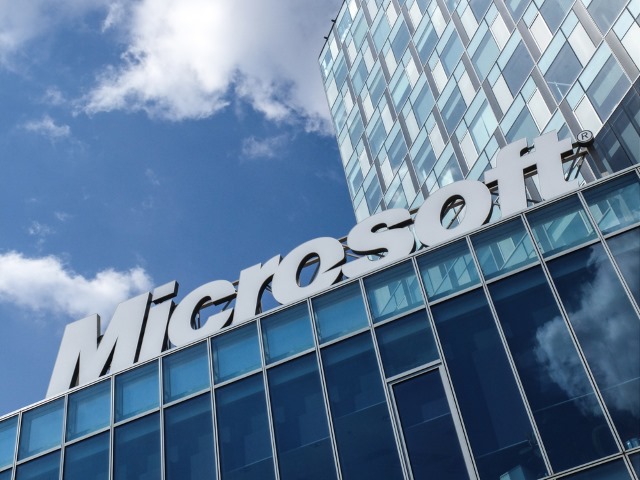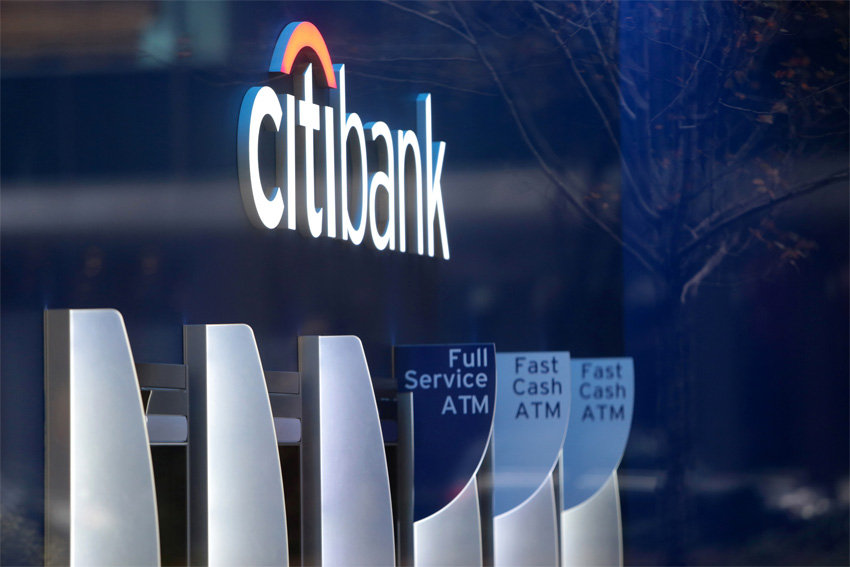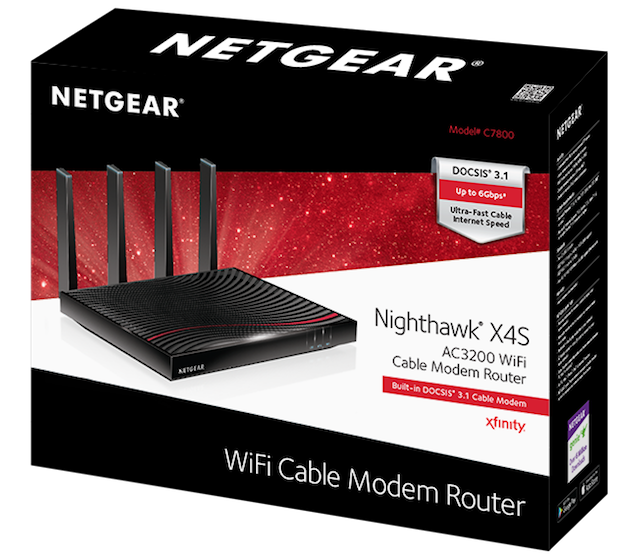
SMBs lack clear plans on cyber-attack aftermaths
There’s plenty of talk on how small and medium-sized businesses can and should protect themselves from cyber-attacks. However, when it comes to the aftermath of a cyber-attack, things are awkwardly quiet.
This is according to a new report by PolicyBee, which says cyber recovery is not really in the minds of SMB owners. This is despite a third of those surveyed saying that they think a cyber-attack is inevitable, with a further quarter believing it is "likely" to happen.

How the authentication landscape is changing [Q&A]
Recently there has been much talk of the death of the password and a switch to other forms of authentication, like biometrics, which are seen as more secure.
But is biometric security a complete answer, and do we risk swapping usability for security? We spoke to Perry Chaffee, vice president of strategy at password-less security company WWPass to find out about the latest trends in authentication.

Consumers have a 'false sense of security' when using public Wi-Fi hotspots
Brits still use public Wi-Fi for things they should not, a new report by Norton by Symantec claims. By doing so, they’re putting a lot of their personal information at risk.
The report says most consumers have a "false sense of security" when using public Wi-Fi. Almost two thirds (65 percent) feel safe when they use public Wi-Fi, and less than a fifth (19 percent) use a VPN.

Microsoft replaces Jim DuBois as CIO with Kurt DelBene
Last week we reported how Microsoft is laying off thousands of its workers as it shifts its focus towards cloud a bit more. It was reported, on multiple occasions, that it will be sales jobs, and mostly abroad, that will be nixed.
However, new media reports are now painting a different picture. Among those that left the company is Jim DuBois.

Give your text a spell and grammar check with Grammarly 1.5 for Windows and Mac
Correct spelling and grammar is something of a dying art these days. Rather than embark on a rant, however, let us gently direct you towards a superb online tool for helping to bring your language skills up to scratch with the minimum of fuss.
Grammarly 1.5 takes this online spellchecker and grammar correction tool on to your Windows PC or Mac -- now you can keep on top of all your documents.

Apple will build a second data center in Denmark
Apple has just announced that it will build its second data center in Denmark powered completely by renewable energy.
In total, the project will cost $921 million and the company expects that its new data center will begin operations during the second quarter of 2019. The data center will be located in Aabenraa in southern Denmark close to the German border and it will power all of Apple's online services across Europe, including Siri, Maps, iMessage, the iTunes Store and the App Store.

Citi Pay joins the mobile/online fray
If you thought there weren't enough digital "Pay" platforms in the United States... you would be in a class by yourself. Nevertheless, there is a new option in the ever-expanding "digital wallet" marketplace.
The latest entrant is Citibank, the US's fourth-largest banking institution. Its unique take in this crowded space is its integration with Masterpass -- Citi customers can check out online and in-app anywhere Masterpass is accepted by using their existing online banking credentials.

NETGEAR unveils Nighthawk X4S AC3200 WiFi DOCSIS 3.1 Cable Modem Router (C7800)
Having two items in one isn't always the best idea. When I was a kid, it was fairly popular to buy a television with an integrated VCR. The problem? When the VCR broke, you had a TV with a non-working video player in it forever. Hilariously, it wasn't uncommon to see people plug standalone VCR units into the televisions when that happened. It looked silly. The trend continued later with TVs that had built-in DVD players.
Today, NETGEAR unveils an all-new two-in-one product that is actually very cool. The Nighthawk X4S (C7800), as it is called, is an AC3200 WiFi Cable Modem Router. In other words, it is a modem and router in one. In fact, NETGEAR claims this is the first-ever combo unit to feature DOCSIS 3.1, offering ultra-fast speeds if available in your area. Of course, the dilemma becomes -- if either the router or modem portion stops working, you pretty much need to replace the entire thing. The router won't work with a standard modem, as there is no Ethernet WAN port -- just coaxial.

Two new vulnerabilities found in Windows NTLM security protocols
Researchers at behavioral firewall specialist Preempt have discovered two vulnerabilities within the Microsoft Windows NT LAN Manager (NTLM) security protocols.
The first involves unprotected Lightweight Directory Access Protocol (LDAP) from NTLM relay, and the second discovery impacts Remote Desktop Protocol (RDP) Restricted-Admin mode. Both vulnerabilities can result in unauthorized credential use, risk of password cracking and potentially domain compromise.

If you want to invest in the cryptocurrency market, get used to its volatility
Investing in cryptocurrency is not for the faint of heart. The market is simply too volatile. In a short period of time, it can reach all-time highs and crash, repeatedly, seemingly out of nowhere. The trick is to not let those moments define your actions.
Just like you enjoy seeing it break new records, you have to get used to the fact that there will be some terrible days as well. Today is one of those days. All the major cryptocurrencies are in the red, with the vast majority posting double-digit losses over the last 24 hours.

DigitalOcean launches high performance cloud servers for compute intensive applications
Although cloud-based server infrastructure is becoming more common, it's not usually suited to applications that need very high levels of CPU performance.
Developer-focused cloud platform DigitalOcean wants to change this with High CPU 'Droplets' featuring the latest Intel Xeon Scalable processors. These provide ideal support for applications such as ad exchanges, game servers, highly active front-end application servers, and batch processing.

EFF's latest privacy report criticizes Amazon and WhatsApp over policies that 'fall short'
The Electronic Frontier Foundation has published the latest edition of its "Who has your back" privacy report. This is the seventh report from the digital rights group, and this year it criticizes both WhatsApp and Amazon for having policies that "fall short of other similar technology companies."
Four big telecom companies -- AT&T, Comcast, T-Mobile, and Verizon -- performed very poorly, while at the other end of the scale Adobe, Credo, Dropbox, Lyft, Pinterest, Sonic, Uber, Wickr, and WordPress were all praised. In all, the report rates 26 technology companies in five key areas relating to privacy and government data requests: "Follows industry-wide best practices," "Tells users about government data requests," "Promises not to sell out users," "Stands up to NSL gag orders" and "Pro-user public policy: Reform 702."

Rapid response software helps companies recover from ransomware attacks
Recent high profile ransomware attacks including WannaCry and NotPetya have highlighted the fact that often the time organizations take to recover is just as damaging as the attack itself.
Network visibility firm Portnox is aiming to tackle this with the launch of Rapid Ransomware Response and Control as part of its suite of network access control (NAC) systems.

Enhanced firewall integrates with Azure and DevOps tools
Cloud security specialist Barracuda Networks is announcing enhancements to its firewall products to help customers speed up Microsoft Azure adoption and become cloud ready.
Barracuda NextGen Firewall and Barracuda Web Application Firewall (WAF) both now integrate with Microsoft Operations Management Service (OMS). A Barracuda WAF specific dashboard is now available in the Azure Marketplace, making it easy for administrators to take advantage of this integration.

Does your IT team fully understand the security pitfalls of SSDs?
Solid state drives (SSDs) are a compelling proposition for IT procurement, as they have several advantages over hard disk drives (HDDs). The lack of moving parts means they generally last longer and are more reliable. Their faster access speed enables programs to run faster. Plus, they use less power, which improves device battery life and generates less noise. Prices are dropping fast, making this less of a factor when evaluating the two technologies side-by-side.
It’s no surprise that Gartner predicts 2017 will be the year revenue from enterprise sales of SSDs surpasses that from the older, more established technology. However, if organizations don’t want to run into substantial problems further down the line, a key question must be asked. Do IT and security teams have a good enough understanding of the technology to manage it appropriately? Take the data sanitization process at the point when an SSD-based device is due to be recommissioned, recycled or resold. Are the correct methods for carrying out and validating the complete sanitization and erasure of data both known and understood? Unfortunately, our research proves they’re not.



